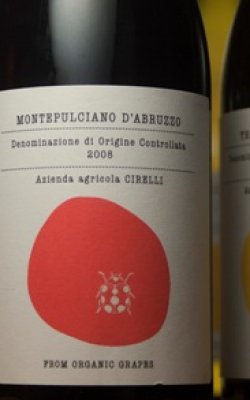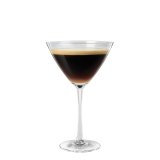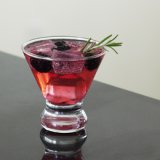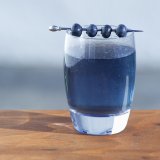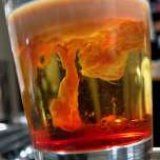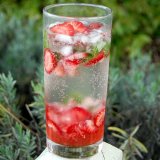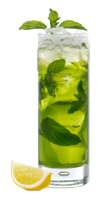Last week I had the pleasure of sitting down with Justin Gallen, an Italian importer and one of his producers, Francesco Cirelli, a winemaker from the eastern Italian region of Abruzzo. This week Cirelli emphasizes the importance of organic and biodiversity farming, a concept he puts into practice back home in Italy.
Drink of the Week (DOTW): What types of wine does Cirelli produce?
Francesco Cirelli (FC): First of all, we are respectful of the sense of place. They have to be wines that are showing the characteristics of the place where the wines are being produced. Second, they have to be as natural as possible meaning that, yes, we are certified organic.
DOTW: Where does your wine come from?
FC: We acquired an estate in 2003 in Abruzzo. It’s an eastern Italian region of Italy on the same latitude as Rome. Whereas Rome is on the west, we are on the east. We don’t have any background in agriculture, but we really wanted to experience something new. We really wanted to change our life and try to focus on different values. Since the beginning, we wanted to have a full farm concept and organic, so we decided to plant the new vineyards, but at the same time we planted the fig trees, we planted garlic, we planted olive trees. This is extremely important if you want to be a real, organic farm. It’s rather better to have different cultivations instead of being a monocultural kind of farm. We also started breeding geese. Now, we have 300 geese going around the farm naturally feeding the soil and controlling the weeds.
DOTW: What are some of your other products?
FC: We produce wines, extra-virgin organic olive oils, fig marmalades, fresh garlic. We also produce hams and salamis from the goose meat and a very nice marmalade from the Montepulciano grapes. We have about ten different products.
DOTW: Can you talk a little bit about the winemaking process?
FC: It really depends on the style of wine. Now we are producing two different styles. The first is a little bit more of a daily wine. A little bit easier, great drinkability and low in acidity. Those wines are fermented in stainless steel tanks. The second style is a little bit more, I would say, philosophical or a little more complicated. We decided to use a very old container for fermentations which is clay. They are 800-liter clay vessels. Two different winemaking processes, two different styles.
DOTW: Can you choose a favorite?
FC: The favorite is the amphora-fermented wines. They are the more artisanal containers. Those are the containers where you are obliged to intervene manually and you can use nothing except for your body. If you have to clean, you have to go inside with your swimming suit and clean the vessel. You cannot use anything else. This makes for a more emotional process. It’s the one that requires more effort. It’s you and the clay vessel, that is all.
DOTW: Mr. Gallen, on your website you’ve said something very beautiful, “Every time I open a bottle, I want to be taken on an adventure of the mind. I want to be transported to another place and another time… another world.” Where does Cirelli’s wine take you?
JG: The reason why people are fascinated by wine is that it does transport you. When you taste the Montepulciano, the Cerasuolo, the Trebbiano d’Abruzzo, you can feel yourself being taken to the Italian countryside. You smell the flowers, you smell the herbs in the soil, you smell the flavors that are coming from the grapes and you can feel the sun on the grapes and the sun that, then, is on your shoulders as you are transported into that environment. It truly is the one alcoholic beverage that provides you with a sense of place and a sense of history and a sense of being in the moment… and Francesco’s wines definitely do that.
INTERVIEW HAS BEEN CONDENSED AND EDITED.
Visit Rinascimento Wine Company.
Visit Cirelli to learn more about their wine and other products.

